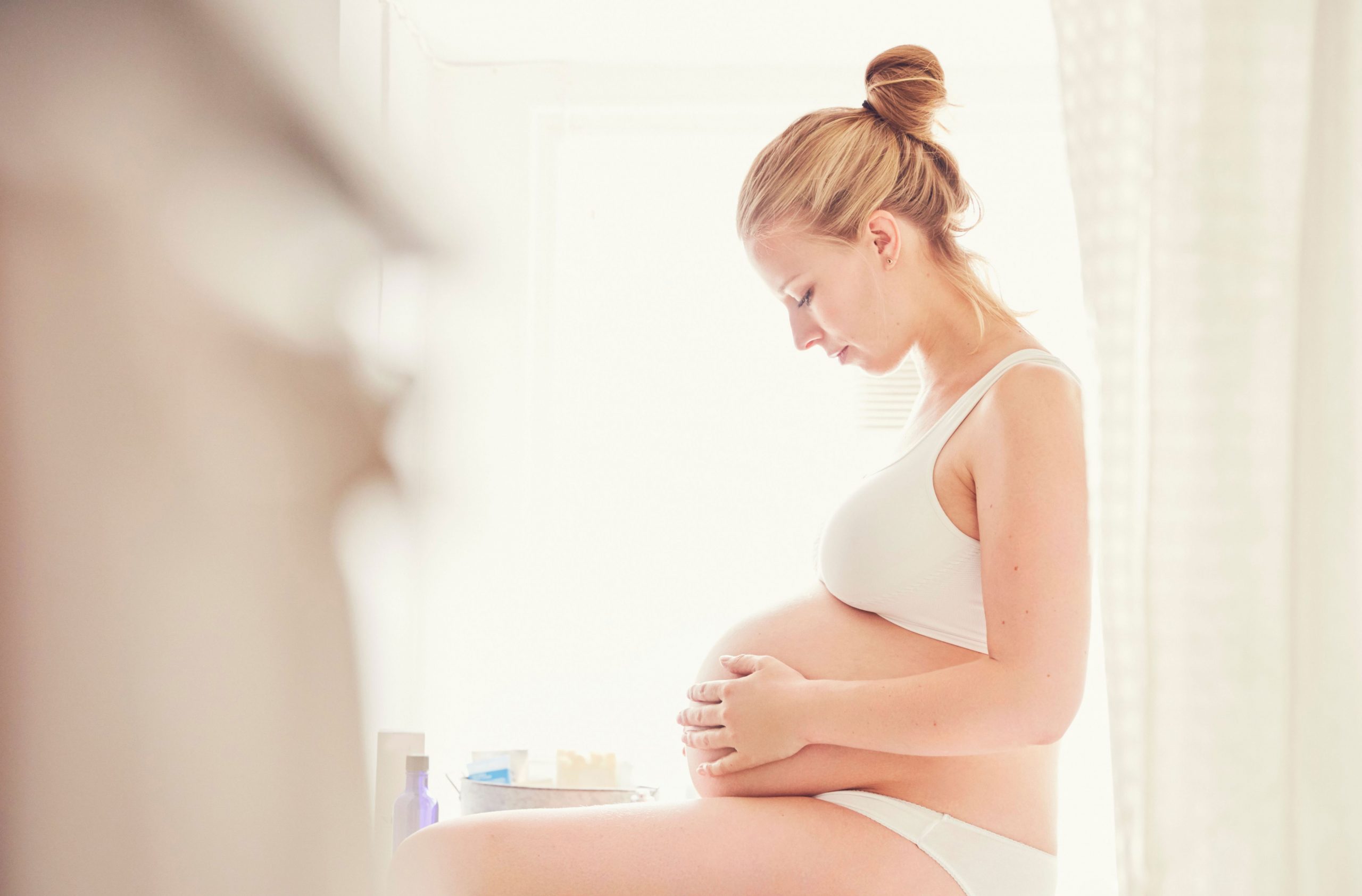Hypnobirthing: Everything you need to know
What is hypnobirthing and how can it help expectant mums with labour and delivery?


Can hypnobirthing really help women in labour? We look at how relaxation techniques can help women while giving birth.
Gone are the days when the only consideration for welcoming a little one into the world meant a straight home or hospital birth decision.
Nowadays, pregnant women are inundated with options - and hypnobirthing is one such birthing method that more and more expectant mums are turning to.
Hypnobirthing is by no means a new 'trend'. It was first being written about by an English Doctor, Grantly Dick-Read, in 1942, in his book Childbirth without Fear, which encourages hypnosis during labour.
Now, many women are choosing to take this route after a traumatic experience with their first child or just because they are anxious about what lies ahead during childbirth. So we have found out more about what hynobirthing involves and why you might consider using hynobirthing in your childbirth.
What is hypnobirthing?
Hypnobirthing is an educational program that teaches expectant mums how to use relaxation and breathing techniques to enter a state of self-hypnosis during labour and delivery. This state of self-hypnosis is claimed to decrease the pain that a woman experiences at that time.
Siobhan Miller is a Hypnobirthing Teacher and Founder and CEO of The Positive Birth Company, a provider of digital and in-person hypnobirthing classes.
Parenting advice, hot topics, best buys and family finance tips delivered straight to your inbox.
As she explains, “By completing a hypnobirthing course women learn how their body is designed to work perfectly in birth from a physiological and psychological perspective. The relaxation techniques taught enable women to work with their bodies to best facilitate a quicker, easier and stress-free birth, reducing the risk of medical intervention which can lead to birth trauma.”
“The course helps women to understand why it is important to remain calm and relaxed, in mind and body, and also how best to achieve this. Every birth matters and every woman should be able to approach birth feeling informed, positive, empowered and excited."
Anthonissa Moger, Founder of The Hypnobirthing Midwife and author of Holistic Hypnobirthing, explains more:
http://www.youtube.com/watch?v=G0RrUYXzc88
Who should use hypnobirthing?
It is great for first-time mums who are suffering anxiety surrounding the birth because they've never done it before.
It also helps some mums get over a previously traumatic birth - many use it for their second and third child if they had a bad experience the first time. If you are pregnant, and looking for an alternative to taking lots of drugs to deal with the 'inevitable pain' mindset, then hypnobirthing could be for you.
According to none other than the Duchess of Cambridge, it's also used by those who suffer with severe symptoms of hyperemesis (extreme sickness). While appearing on the Happy Mum, Happy Baby podcast with host Giovanna Fletcher, the Duchess attributed harnessing ‘power of the mind over the body’ in hypnobirthing as the cure for the sickness.
The Duchess said, "I really had to try everything and everything to try and help me through it", as she experienced the symptoms with all three of her pregnancies.
Why would I use hypnobirthing?
This state of self-hypnosis means that you apparently experience less pain, have less reliance on pain-relieving medication and a decreased average length of labour.
Hypnobirthing can be used no matter what type of birth you are planning - homebirth, hospital, birthing centre or birthing pool.
How do I get started?
The classes are all antenatal - during your pregnancy - and cover teaching both mum and dad about relaxation strategies and non-pharmacological techniques such as meditation and visualisation.
The classes also educate women about the way the uterus functions and how the fear-tension-pain-cycle makes labour worse. Before your delivery date a hypnobirthing teacher will teach you how to put yourself in control of your birth rather than leaving the control with the midwife or doctor.
Can I get hypnobirthing on the NHS?
More and more hospitals are encouraging midwives to train in hypnobirthing after experts persuaded the NHS that the technique has merit. Midwives in Colchester, Wolverhampton, Stevenage and the Scottish Highlands are now putting on classes, with others in Exeter, Gloucester, Walsall and Bury St Edmunds soon to follow. The classes used to cost £250 but were made free last year.
What happens during hypnobirthing?
Lots of people think that hypnobirthing means you will be in a trance-like state or even sleeping during the birth, this is not true.
You will still be aware of everything going on around you - able to chat and be in good spirits - but you will be fully relaxed and totally in control, able to 'tune out' the negative feelings and concerns. Experts say you can expect to 'experience birth in an atmosphere of calm relaxation', free from tension or fear about the birth.
What are the pros?
There has been research that showed, compared to general population figures, mothers using hypnobirthing can expect; decreased period of labour, lower caesarean section rates, decreased use of gas and epidurals and greater emotional satisfaction.
Hypnobirthing doesn't require that you believe in anything spiritual and according to the experts most mums and dads are incredibly sceptical before beginning the classes.
Hypnosis is completely safe according to the proponents of hypnobirthing.
What are the cons of hypnobirthing?
Hypnosis is generally considered a controversial treatment, with many scientific studies refuting claims that it works.
A 2004 study found insufficient evidence to prove that it reduces or eliminates pain in childbirth. They cannot guarantee a completely pain-free labour - 65-70 per cent of hypnobirthing mums don't need any pain relief. Around 20% only require something mild like gas and air.
Celebrity fans
Along with the Duchess of Cambridge, there's a whole host of celebrities who've tried hypnobirthing. These include Suzanne Shaw, Billie Faiers, Pamela Anderson and Angelina Jolie.

Jessica Alba used hypnobirthing/Credit: Getty Images
Jessica Alba, who has two daughters Honor and Haven, is also a fan. "Basically, my husband takes me through sort of a meditation. So he's saying - you're relaxed and you're floating on clouds,' while you're going through labour and your contractions."
Would you try hypnobirthing? Head over to our Facebook page and let us know your thoughts!

Grace Walsh is a health and wellbeing writer, working across the subjects of family, relationships, and LGBT topics, as well as sleep and mental health. A digital journalist with over six years experience as a writer and editor for UK publications, Grace is currently Health Editor for womanandhome.com and has also worked with Cosmopolitan, Red, The i Paper, GoodtoKnow, and more. After graduating from the University of Warwick, she started her career writing about the complexities of sex and relationships, before combining personal hobbies with professional and writing about fitness.